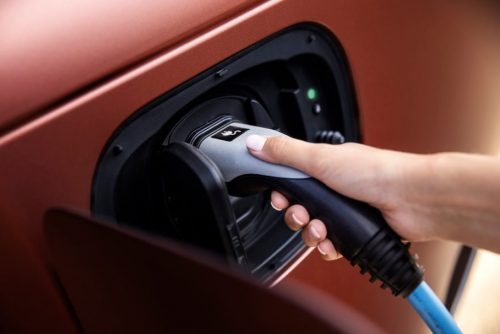JLR to spearhead £12m EV project

A team from Jaguar Land Rover based at The University of Warwick are set to develop electric vehicle technology thanks to Government funding.
The EleVAIT research project will receive £12.6m from Government and industry to work on advanced inverter technology which will provide greater power and efficiency for EVs.
It’s one of seven pieces of work to support the development of clean transport technologies. £77m has been granted across the seven projects which range from work on green fire engines, to hydrogen and electric buses.
JLR will lead the work collaboratively with the University of Bristol, API Capacitors, and Custom Interconnect Limited. The scheme is projected to support 1,258 jobs over the next ten years and save 55,000 tonnes of CO2.
John Stamford, Chief Engineer, Power Electronics at JLR said: “The EleVAIT project is a testament to the UK’s commitment to a carbon net-zero future.
“By utilising the latest wide band gap semiconductors, integrated device and component packaging, modelling and utilisation techniques, this research project will help us to achieve increased power density and higher efficiency for future vehicles– all of which are critical to achieve the goals of JLR’s Reimagine strategy.”
A Department for Business and Trade spokesperson said:“Zero-emission cars, vans and taxis are increasingly common, but this cutting-edge work is going to mean clean, green vehicles designed and built in the UK can increasingly take on the toughest jobs too, from life-saving emergency services, to haulage and public transport.
“Our automotive industry keeps setting the pace globally and seizing the potential of new technologies. Today’s multi-million-pound boost will help them stay ahead of international competition, while delivering on our priority to grow the economy and support high-quality jobs.”
The funding has been awarded through the Advanced Propulsion Centre (APC) Collaborative Research and Development programme, in support of ambitions to build an end-to-end supply chain for zero-emission vehicles (ZEVs) in the UK. £38.4m of this investment comes from Government, backed by a further £38.7m from the automobile industry.
Joint government and industry funding winners also include:
HEIDI – Bramble Energy
£12.7m for work to demonstrate a novel fuel cell/battery hybrid powertrain on a double-decker bus, that will be cheaper than the equivalents currently available for large vehicles.
NEXTGENZEBS – Wrightbus
£12.7m backing for new, market-leading technology to underpin battery and fuel cell electric buses.
FCVGEN2.0 – Ford Motor Company
£16.3m awarded to design and develop a hydrogen fuel cell-powered version of the Ford Transit van, which will initially be produced at Ford Dagenham.
CAVENDISH – BorgWarner
Awarded £9.8m for work to speed up the rollout of hydrogen-burning internal combustion engines, as an alternative to diesel, for use in heavy-duty settings. Hydrogen is a clean fuel, producing only water when burned.
HYER POWER – ULEMCO
£7.9m backing to develop a hydrogen fuel cell range extender for electric vehicles used for specialised and challenging purposes, such as ambulances, fire engines and street sweepers.
ZETTA – Leyland Trucks
A £5.1m investment. Through better use of automation and advanced testing, Leyland Trucks aim to increase productivity and step up their production of battery electric trucks.








